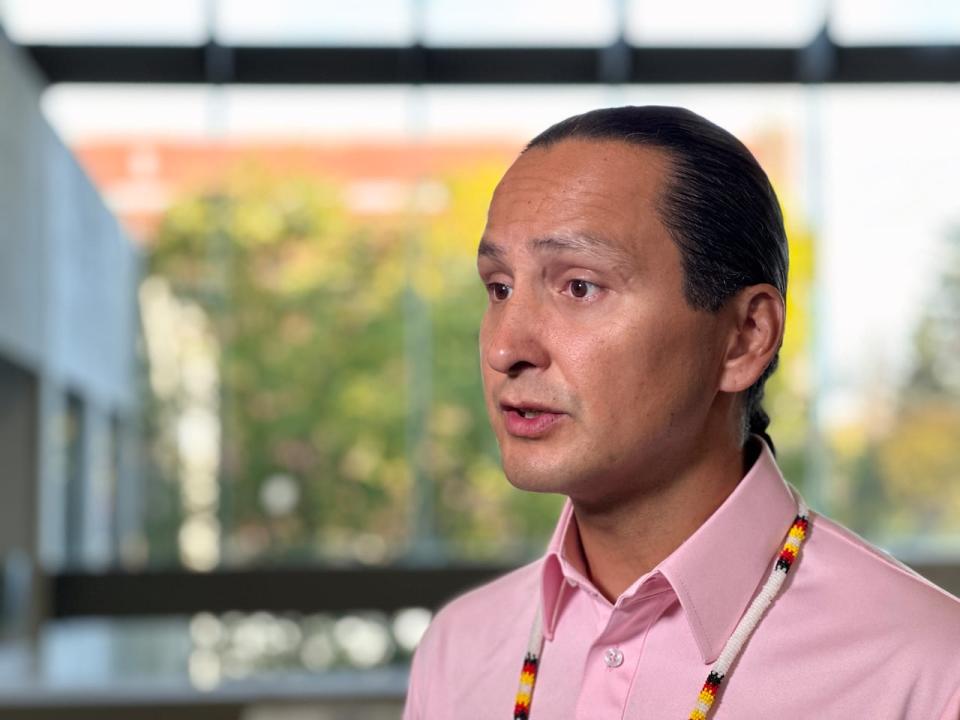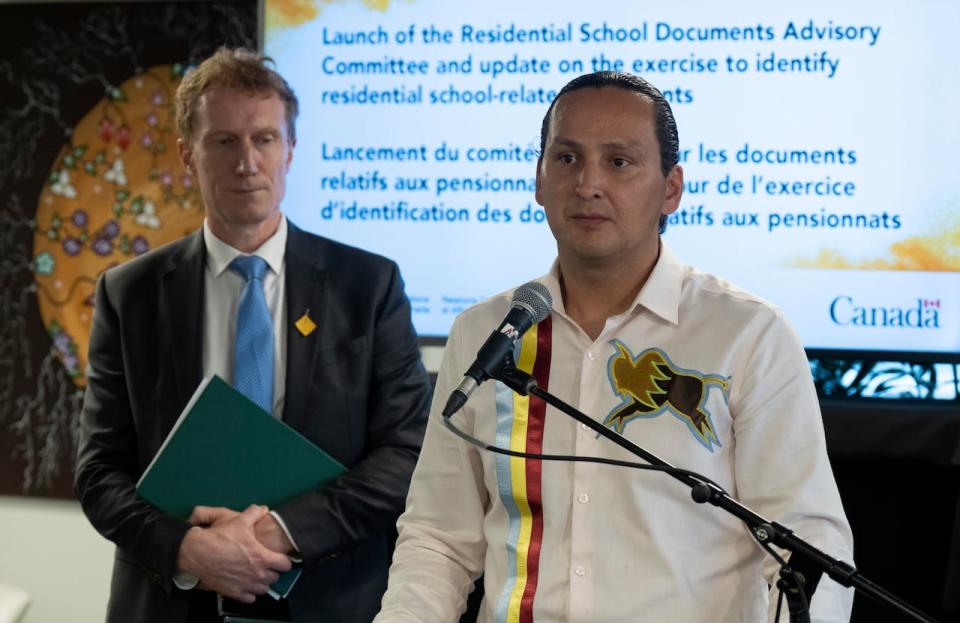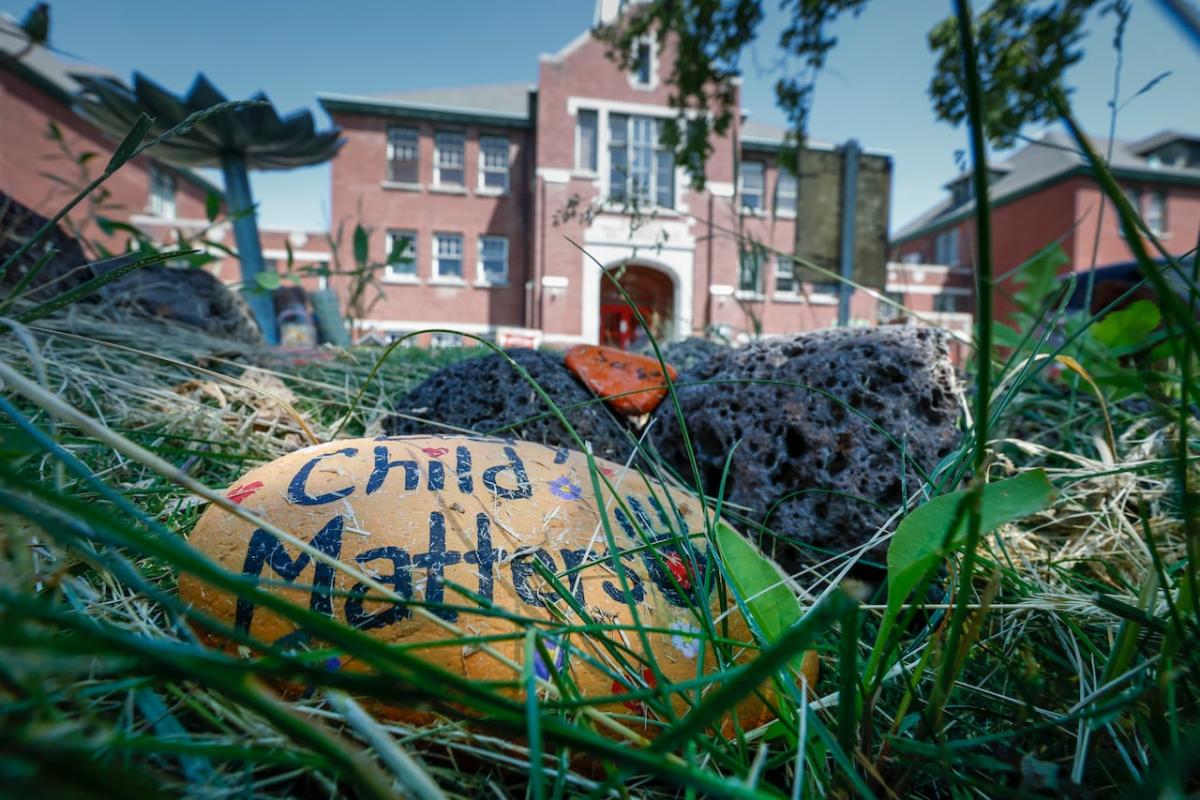The chairperson and eight members of a committee formed to be in charge of efforts to examine and share historical documents about residential schools in Canada have all exited their roles, saying the federal government didn’t provide sufficient funding to fulfil their mandate.
Cadmus Delorme, who was the chair, resigned from the Residential School Documents Advisory Committee in July, along with eight other members.
Delorme said he made the decision after repeated requests for adequate funding from Ottawa were left unheeded.
“None of us wanted to stop this because we all know what the impact that’s going to make, but we just couldn’t fulfil it with the minimal resources that were provided to us this year,” Delorme said.
“Even if you give me a half a tank of gas, we can figure this out. But it was told to me that, ‘This is what we have this year. Next year we’ll ask for more.'”

Cadmus Delorme says he made the decision to step aside from the Residential School Documents Advisory Committee after repeated requests for adequate funding from Ottawa were left unheeded. (Kirk Fraser/CBC)
Delorme announced last year that he wouldn’t seek a third term as chief of Cowessess First Nation, which is located about 140 kilometres east of Regina, in order to pursue new endeavours.
The advisory committee, which held its first meeting in June 2023, was made up of external advisors as well as representatives from more than a dozen government agencies.
Delorme said all of the external advisors decided to suspend their roles, while the government representatives have continued with their jobs..
The committee was tasked with developing recommendations for how to identify historical documents related to residential schools and share them with the National Centre for Truth and Reconciliation. It had a mandate to ensure Indigenous voices are reflected in all discussion and decisions around the “identification, review and sharing of residential school-related documents.”
According to a Crown−Indigenous Relations and Northern Affairs Canada news release from when the committee was formed, the intent was to have representation from residential school survivors, members of First Nations, Inuit and Métis communities, experts and representatives of the federal government.
The importance of what they were doing, Delorme said, was carefully deliberated upon before he and others made the decision to step away.
“I was thinking of all the residential school survivors that are leaning on us in this moment, but if we don’t have resources, I can’t fulfil my mandate, and so it was an extremely tough decision to suspend my role,” he said.


Crown-Indigenous Relations Minister Marc Miller looks on as chair of the Residential School Documents Advisory Committee Cadmus Delorme speaks during a news conference in Ottawa in June 2023. (Adrian Wyld/The Canadian Press)
Under the terms of the federal government’s residential schools settlement agreement, which formally recognized 140 residential schools across Canada, all parties agreed to collect historical documents related to the schools and house them with the National Centre for Truth and Reconciliation.
Through an initial review, the departments and agencies collaborating on the project said they had identified as many as 23 million additional documents related to residential schools for the committee to consider.
“The majority of the time Indigenous people are not in those rooms,” Delorme said. “So that’s why it’s really important that we just must understand that in order to do reconciliation, resources have to be matched with it.”
During an Oct. 2 question period session, Sen. Brian Francis asked the representative of the government in the Senate, Sen. Marc Gold, about “minimal funding” for the Residential School Documents Advisory Committee. Gold responded saying he’d be happy to work with Francis on the issue.
“We should speak further so I can attempt to better respond to your question,” Gold said.
The Ministry of Crown-Indigenous Relations and Northern Affairs Canada did not respond to CBC’s requests for an interview.

